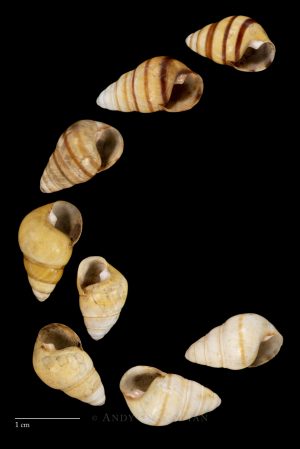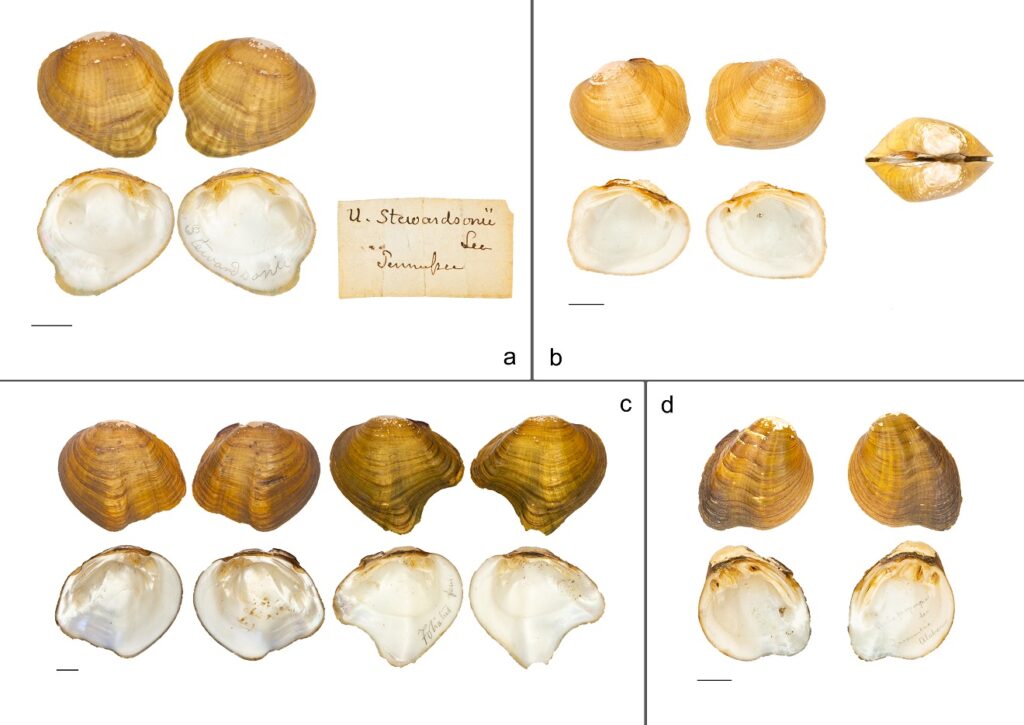
MALACOLOGY
Molluscs (snails, clams, squids, nautiluses and others) are the most diverse group of animals in the world’s oceans. With the acquisition of the collection of local Connecticut collector Simeon Shurtleff in 1868, 90,000 mollusc specimens entered the Wesleyan natural history collections and became the foundation of our malacological collection.
Our malacological collection houses specimens from across the globe, including well-known imperilled and extinct organisms such as the rare Hawaiian Tree Snails and Southeast Asian Giant Clams.
The freshwater mussel collection contains thousands of rare species specimens that have become imperiled in the United States and several type specimens. This collection is extensively used in research and outreach to highlight the importance of small natural history collections in safeguarding and chronicling biodiversity loss in the Anthropocene.

Extinct Hawaiian Tree Snails, Achatinella livida. These specimens were collected when the species was still abundant. Most species of the colourful Hawaiian Tree Snails are now critically imperilled due to predation from the introduced predatory Rosy Wolf Snail (Euglandina rosea), brought to Hawaii as a biological control for another introduced species, the African Giant Snail (Lissachatina fulica).

Extinct specimens of North American freshwater mussels in the Wesleyan Collections. a. Epioblasma stewardsonii, b. Epioblasma arcaeformis, c. Epioblasma flexuosa, d. Epioblasma propinqua.




